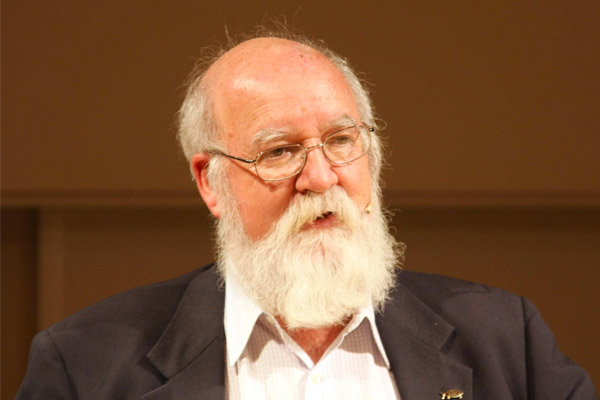
Here’s a take on the Modern State of Religion
- By Hayli Harding --
- 20 May 2015 --

In the recent update to his book Caught in the Pulpit, Daniel Dennett comments on the ever-changing landscape of religion.
Daniel Dennett is well-known for his science philosophies and recently updated book Caught in the Pulpit: Leaving Faith Behind, which he wrote with Linda LaScola. Dennett, a New Atheist, who yearns for factual explanations, and feels that religion is suffering from the recent developments in technology that have given humans access to endless amounts of information. The Clergy Project, cousin to Caught in the Pulpit, was created for clergymen and women who have left their faith, whether it is openly or closeted. Caught in the Pulpit is non-fiction, and features 35 interviews about faith, beliefs and what made them stay in, or leave, their religion. They don’t solely focus on one particular faith with Mormons, Jews, Presbyterians and Pentecostals, among others, giving advice and telling their stories. The writers went to great lengths to keep the book unbiased, giving readers a look at the stress felt by religious leaders, as well as what they experienced as a result of leaving their religion.
The Cubit blog at Religion Dispatches sat down with Daniel Dennett to discuss his book, as well as his personal projections for religion in the world. While Dennett’s views are readily received by non-believers, those struggling with their faith, and even those firmly invested in it, can gain a lot from Caught in the Pulpit. Throughout his interview, he avidly attempts to keep personal faith out of the discussion. Instead, he directs the attention toward the overall function and strategy of religions as a whole. In this day and age, he says, it is difficult to see how religion can continue without making some changes. However, these changes are being made by organizations, businesses and education systems, not solely religions.
With the technology and information age, we have so much more information at our fingertips than we once did. Religion in the past depended on secrecy of not solely other religious views, but of their own religious history and inner workings. The message they gave to their followers could easily be controlled given how little everyone truly knew. Dennett says that there is definitely a place for tradition, and the function that religion provides to people through love, guidance, importance, and belonging is the sole function he would attempt to preserve.
The Cubit brought up the Pew study that Islam is growing at the fastest rate compared to any other religion. However, as Dennett pointed out, this is largely because their fertility rates are exceedingly high rather than other faiths’ conversions to Islam. These babies would be given the pre-determined Muslim religion, and it would be unlikely for them to remain Muslims as they grow up, learn more and develop their own beliefs. When it comes down to it, Dennett still believes that transparency in religion will be their downfall.


















